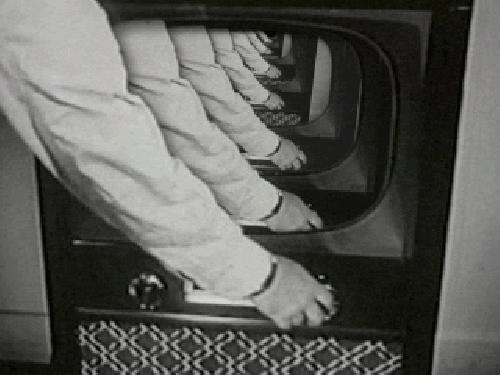
[UPDATE: Full video of the complete panel is now online: here.]
Here is the abstract for Mark Hansen’s paper on the panel “Post Cinema and/as Speculative Media Theory” at the 2015 SCMS conference in Montréal:
Speculative Protention, or, Are 21st Century Media Agents of Futurity?
Mark B. N. Hansen (Duke University)
In his effort to develop a philosophical account of time-consciousness in the media age, Bernard Stiegler has invoked cinema (as a stand-in for global, realtime, audiovisual fluxes) as the media object par excellence, the technical temporal object that brokers, models, and operates as surrogate for the temporalization responsible for conscious life. Since the publication of the first volume of Stiegler’s Technics and Time, critics have responded to Stiegler’s project with a mix of enthusiasm and skepticism: enthusiasm for the reworking of seemingly moribund themes of deconstruction into a powerful engagement with contemporary media technologies; skepticism concerning the focus on consciousness and representation as the privileged agent and domain of media’s operationality. One particularly striking consequence of Stiegler’s focus on cinema as temporal technical object is a certain temporal bias toward the past, and a recapitulation of the impasse of protention that plagued Husserl’s account of time-consciousness. So long as protention (the “just-to-come’” futurity that is part of the sensory present on the Husserlian model) is taken to be symmetrical to, and indeed is modelled on or derived from retention (the “just-past” of the sensory present), it cannot but be restricted to something that (1) is already possible from the standpoint of the present, is a mode of possibility belonging to the present, and (2) is representational in the sense of being a “content” of consciousness.
The wide-ranging proliferation of so-called “new media” technologies (what I have called 21st century media in my recent work) affords the opportunity to expand the technical off-loading of time-consciousness that informs the core of Stiegler’s neo-Husserlian thought. Most crucially, 21st century media technologies break the correlation of media with conscious cognition, and thus expand the domain of conjunction to what I have called “worldly sensibility” (the meeting of embodied sensibility and worldly impressionality). In my paper, I shall explore two key aspects of this expansion that directly concern the operationality of “speculative media theory”: 1) how the shift from consciousness to sensibility liberates protentionality from its twin restrictions (possibility of the present and representation of consciousness); and 2) how this shift requires a speculative mode of theorization that is an immediate function of the uncertainty and unrepresentatibility of the future.
Bibliography:
Hansen, Mark B. N. Feed-Forward: On the Future of Twenty-First-Century Media. Chicago: U of Chicago P, 2014.
Stiegler, Bernard. Technics and Time, Vol. 3: Cinematic Time and the Question of Malaise. Stanford: Stanford UP, 2010.
Whitehead, Alfred North. Process and Reality: An Essay on Cosmology. New York: The Free Press, 1978.
Author Bio:
Mark Hansen teaches in the Literature Program and in Media Arts & Sciences at Duke University. He is author of Embodying Technesis: Technology Beyond Writing, New Philosophy for New Media, and Bodies in Code, and has co-edited The Cambridge Companion to Merleau-Ponty, Emergence and Embodiment: New Essays on Second-Order Systems Theory, and Critical Terms for Media Studies. His book Feed-Forward: the Future of 21st Century Media will be published by Chicago in Fall 2014.
0 thoughts on “Mark B. N. Hansen, “Speculative Protention, or, Are 21st Century Media Agents of Futurity?” #SCMS15”